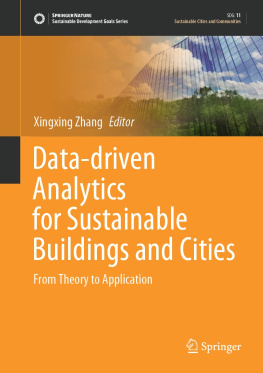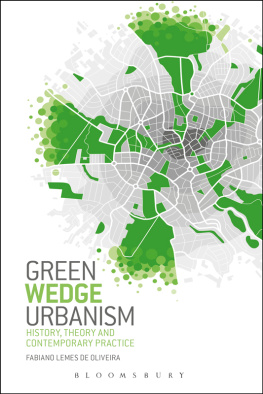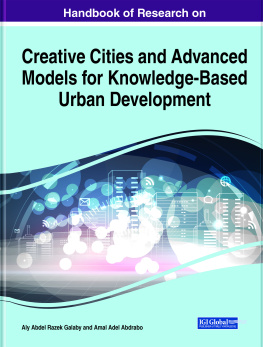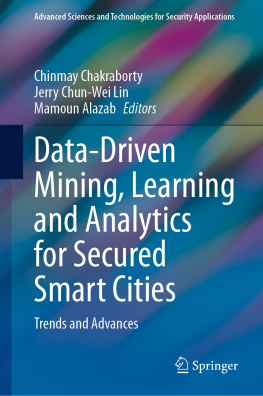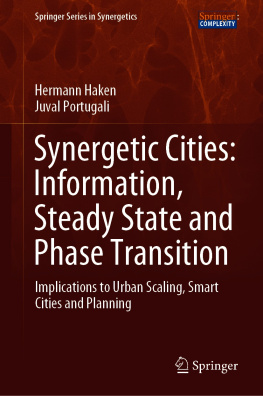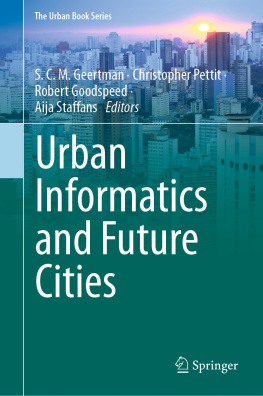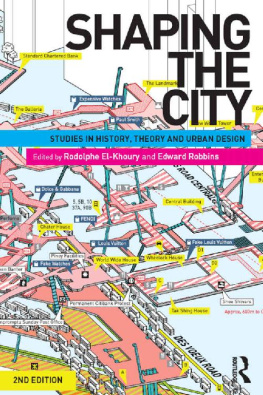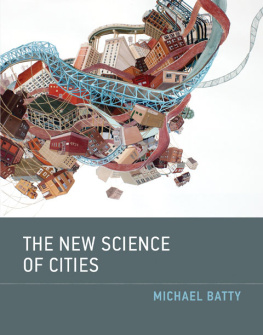Contents
Guide
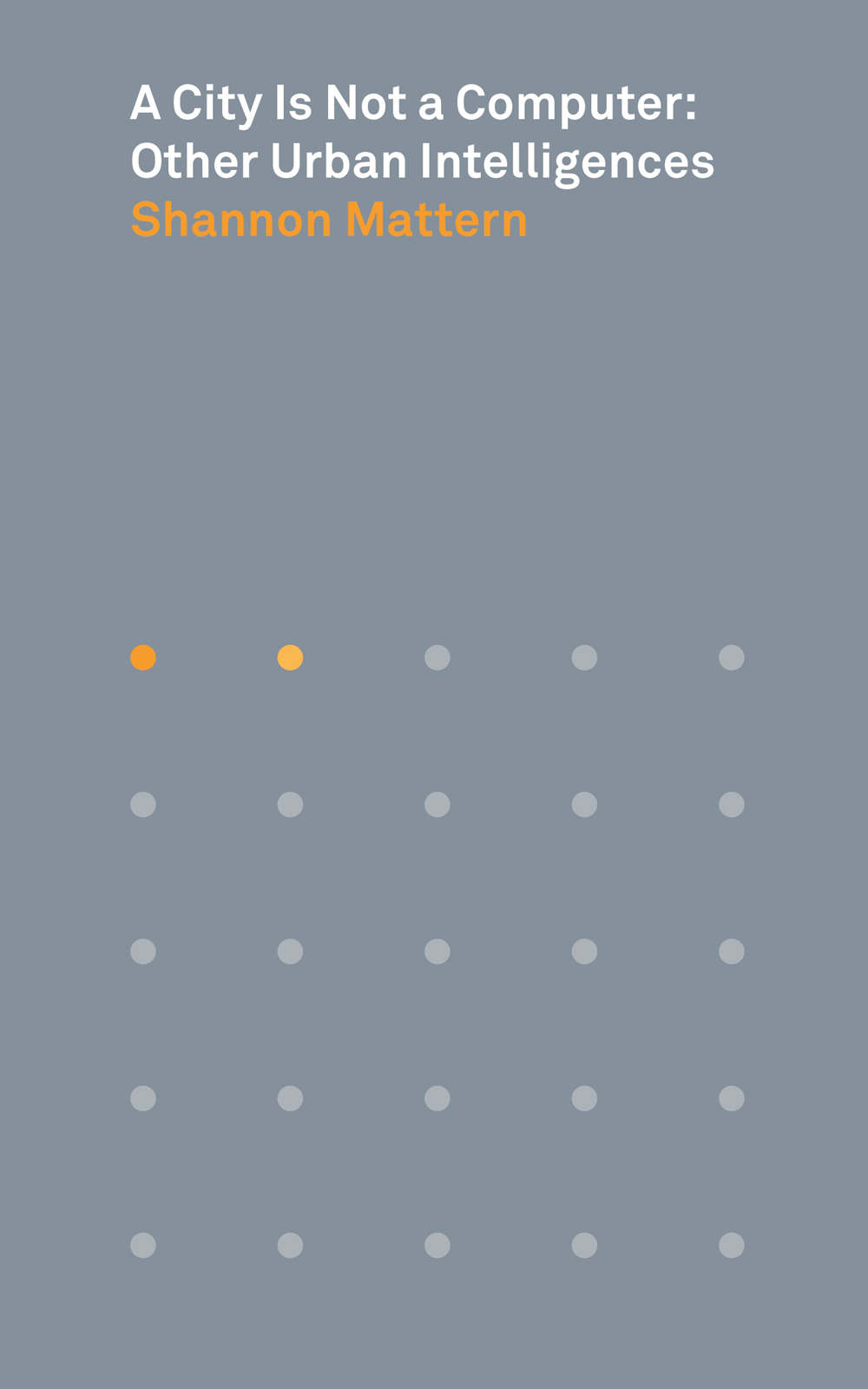
A City Is Not a Computer
A City Is Not a Computer:
Other Urban Intelligences
Shannon Mattern
Published by Princeton University Press
Princeton and Oxford
in association with Places Journal
Copyright 2021 by Princeton University Press
Princeton University Press is committed to the protection of copyright and the intellectual property our authors entrust to us. Copyright promotes the progress and integrity of knowledge. Thank you for supporting free speech and the global exchange of ideas by purchasing an authorized edition of this book. If you wish to reproduce or distribute any part of it in any form, please obtain permission. Requests for permission to reproduce material from this work should be sent to
Published by Princeton University Press,
41 William Street, Princeton, New Jersey 08540
In the United Kingdom: Princeton University Press,
6 Oxford Street, Woodstock, Oxfordshire OX20 1TR
press.princeton.edu
Back cover illustration: Christoph Morlinghaus, Motorola 68030, 2016
All Rights Reserved
ISBN (pbk.) 978-0-691-20805-3
ISBN (e-book) 978-0-691-22675-0
Version 1.0
British Library Cataloging-in-Publication Data is available
vii
Introduction
Cities, Trees & Algorithms 1
Conclusion
Platforms, Grafts & Arboreal Intelligence 140
Acknowledgments
A wide network of people, places, and things contributed to the making of this book. My first and deepest debt is to Nancy Levinson and Josh Wallaert, my editors at Places Journal, where much of this work first appeared. The chapters that follow draw from a number of articles that appeared in Places over the past eight years: Methodolatry and the Art of Measure (2013), Interfacing Urban Intelligence (2014), Library as Infrastructure (2014), History of the Urban Dashboard (2015), Instrumental City (2016), Public In/Formation (2016), A City Is Not a Computer (2017), Databodies in Codespace (2018), Maintenance and Care (2018), Fugitive Libraries (2019), and Post-It Note City (2020). Nancy and Josh gave me a platform, sharpened my thinking, and helped me tune my voice as I came into my own as a scholar and a public writer. Josh, in particular, became a collaborative thinker and a great friend with whom I shared quite a few running jokes through Words track changes. He understood (and perhaps even shared) my fascination with the ways the world embodies knowledge. He knew my quirks, allowed me to make mistakes without making me feel stupid, and made me better. I am eternally grateful.
I am also profoundly thankful for the staff at Princeton University Press: my editor Michelle Komie, editorial assistant Kenneth Guay, permissions manager Lisa Black, production editor Mark Bellis, and copyeditor Cathy Slovensky saw promise in this projecteven when I at times wondered about the value of engaging with the frustratingly capricious world of urban technology through the resolutely enduring form of an academic bookand expertly shepherded it through the process of materialization.
Several folks invited me to share early versions of this work. The ever-generous (and breathtakingly prolific) Rob Kitchin first proposed that I explore the history of dashboards, which I did with the assistance of my spectacular research assistant Steve Taylor, who tackled the literature on aviation history on my behalf. Rob, along with Sung-Yueh Perng, invited me to share portions of History of the Urban Dashboard at Maynooth University and in Understanding Spatial Media, a volume Rob coedited with the equally fantastic Tracey Lauriault and Matt Wilson, both brilliant, gracious, and hilarious colleagues. My friend Zed Adams and the students in our Thinking Through Interfaces class then helped me deepen my thinking about, and through, dashboards.
Zlatan Krajina and Deborah Stevenson solicited a chapter about the city as an information-processing machine, so I decided to argue the opposite. A City Is Not a Computer elicited a number of exciting invitations, including one from Lev Bratishenko, who welcomed me to the Canadian Centre for Architecture to share this work. I thank the teams at Instituto Intersaber, drive: Zeitschrift fr Stadtforschung, and Courrier International for translating this piece into Portuguese, German, and French.
Ive been thinking about libraries for a few decades, and Im tremendously grateful to all the librarians and archivists who have, over the years, answered my research questions, retrieved my materials, offered fruitful leads, invited me to share my research, welcomed me into their design teams, and become friends. I wrote Library as Infrastructure in 2014 and was grateful to see that it resonated widely across the library world, which is in part what prompted Nate Hill to invite me to join the board of the Metropolitan New York Library Council in 2015, and to become its president in 2018. Through METRO Ive drawn inspiration from the talented, tenacious, creative leaders of several of New York Citys esteemed library systems, and Ive learned a great deal from Nate Hill, Josh Greenberg, Nick Higgins, Nick Buron, Caryl Soriano, Stephen Bury, Leah Meisterlin, Kameelah Janan Rasheed, and particularly Greta Byrum, who has become an intellectual collaborator and a good friend.
Im grateful to Rosalie Genevro, Cassim Shepherd, and Anne Rieselbach of the Architectural League of New York and to David Giles, then research director of the Center for an Urban Future and now chief strategy officer at the Brooklyn Public Library, who invited me to join the coordinating unit for the 201415 Re-Envisioning Branch Libraries design studyand to all the extraordinarily talented teams who showed us how we can honor and enhance this marvelous institution through thoughtful design. My early library-themed partnerships with the League established the foundation for several additional, generative collaborations. The teams at C2O Library & Collabtive, Arquine, and the Third Program at Serbian Public Radio (via Jovana Timotijevi and Dubravka Sekuli) then allowed Library as Infrastructure to reach a broader audience by translating it into Bahasa Indonesian, Spanish, and Serbo-Croatian.
Throughout my academic career, Ive sought to draw attention to invisible infrastructural labor and knowledge work. In my 2018 Places article about hardware stores, Community Plumbing, I acknowledged in a footnote the proliferating literature on maintenance, which prompted my editors to invite me to expand this footnote into a full article. Matt Zook and Matt Wilson invited me to share an early version of Maintenance and Care in the Department of Geography at the University of Kentucky, and Ira Wagman and Liam Young then welcomed a reprise in the School of Journalism and Communication at Carleton University. Im grateful to their colleagues and students, particularly to John Shiga, for their constructive feedback.
I must also acknowledge many friends and colleagues at the New School and around the world with whom Ive shared many sparkling conversations and good laughs, and enjoyed fruitful collaborations. There are too many of you to name individually, but I must recognize Julia Foulkes, Aleksandra Wanger, and Sharrona Pearl, who, over the years, have offered invaluable feedback on drafts that ultimately found their way into A City Is Not a Computer.
My students are a boundless source of insight, joy, and motivation; I learn with and write for them. Steve Taylor, Fernando Canteli de Castro, Josh McWhirter, Emily Sloss, Kenneth Tay, Kevin Rogan, Erin Simmons, Aryana Ghazi Hessami, Emily Bowe, Angelica Calabrese, Ramon de Haan, and Yingru Chen, my research and teaching assistants, have been valued partners. My current and recent thesis and dissertation adviseesmany of those listed above, along with Burcu Baykurt, Emily Breitkopf, Agnes Cameron, Zoe Carey, Feng Chen, Zane Griffin Talley Cooper, Nicholas Fiori, Alice Goldfarb, Matthew Hockenberry, Bettine Josties, Diana Kamin, Yeong Ran Kim, Jiun Kwon, Sarah Kontos, Matthew Ledwidge, Josh McWhirter, Daryl Meador, Zach Melzer, Isaias Camilo Morales Cabezas, Jeffrey Moro, Allie Mularoni, Cristina Gagnebin Mller, Hira Nabi, Charlotte Prager, Livia S, Laura Sanchez, Angela Sharp, Rebecca Smith, Wonyoung So, Rory Solomon, and Megan Wiessnerhave greatly enriched my thinking too. Its been a joy to watch their own work flourish.


